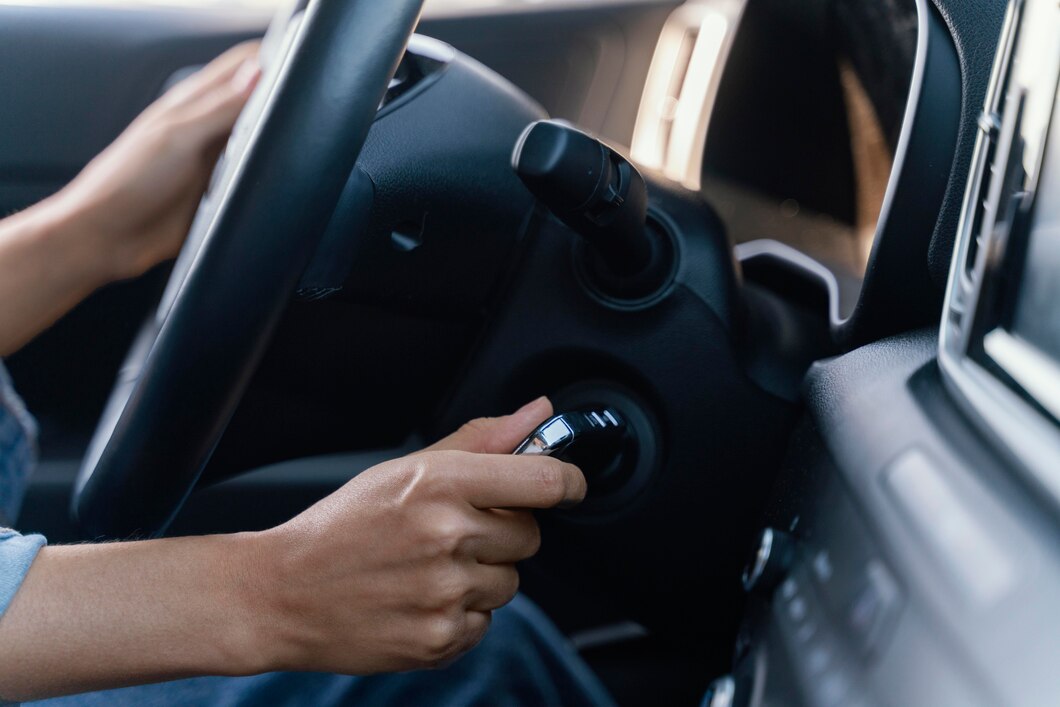The starter motor is a crucial component of your vehicle’s ignition system, responsible for cranking the engine and getting it running. When the starter motor begins to fail, it can leave you stranded and cause significant inconvenience. Identifying early signs of a failing starter motor can help you address the issue before it leads to a complete breakdown. Here are the early warning signs to watch for.
1. Slow or Intermittent Cranking
One of the first signs of a failing starter motor is slow or intermittent cranking when you turn the ignition key. This can manifest as:
- Sluggish Engine Turnover: If the engine turns over more slowly than usual, it indicates that the starter motor is struggling to generate enough power.
- Intermittent Starting: Sometimes the engine might crank normally, while other times it may struggle or fail to crank at all. This inconsistency can point to a starter motor issue.
2. Clicking Noise When Turning the Key
Hearing a clicking noise when you turn the ignition key is a common sign that the starter motor is not functioning properly. This can be due to:
- Faulty Solenoid: The solenoid, which engages the starter motor, may be malfunctioning, causing the clicking sound without engaging the motor.
- Insufficient Power: There might not be enough power reaching the starter motor, often due to issues with the battery or wiring.
3. Grinding Noise
A grinding noise when starting the engine is another indicator of a failing starter motor. This noise can be caused by:
- Worn Starter Drive Gear: The gear that engages with the engine’s flywheel to start the engine may be worn or damaged, causing a grinding sound.
- Misalignment: If the starter motor is not properly aligned with the flywheel, it can create a grinding noise during startup.
4. Starter Stays On After Engine Starts
If the starter motor continues to run after the engine has started, it indicates a serious problem. This could be due to:
- Sticking Solenoid: The solenoid might be sticking, causing the starter motor to remain engaged even after the engine starts.
- Electrical Issues: Faulty wiring or electrical components can cause the starter motor to keep running, which can damage both the starter and the engine.
5. Engine Won’t Start
A clear sign of a failing starter motor is when the engine fails to start at all. This could be due to:
- Complete Starter Motor Failure: If the starter motor has completely failed, it won’t be able to crank the engine, leaving you unable to start your vehicle.
- Electrical Problems: Issues with the battery, ignition switch, or wiring can prevent the starter motor from receiving the necessary power to start the engine.
6. Dashboard Warning Lights
Modern vehicles often have dashboard warning lights that can indicate problems with the starter motor. Pay attention to:
- Check Engine Light: While this light can indicate various issues, it can also point to problems with the starter motor or related components.
- Battery Warning Light: A battery warning light can indicate electrical issues that might affect the starter motor’s performance.
7. Smoke or Burning Smell
If you notice smoke or a burning smell when trying to start your car, it’s a serious warning sign of a failing starter motor. This can be caused by:
- Overheating: A failing starter motor can overheat due to excessive use or internal faults, leading to smoke and a burning odor.
- Electrical Short: Faulty wiring or connections can cause an electrical short, producing smoke or a burning smell.
8. Frequent Need for Jump-Starts
If you find yourself frequently needing to jump-start your car, it could be a sign of a failing starter motor. This is often a symptom of:
- Weak Starter Motor: A weak starter motor might require additional power from a jump-start to crank the engine.
- Battery Issues: While the problem might be with the battery, it can also indicate that the starter motor is drawing excessive power, draining the battery quickly.
Recognizing the early signs of a failing starter motor can save you from unexpected breakdowns and costly repairs. If you notice any of these symptoms, it’s crucial to have your vehicle inspected by a professional mechanic. Addressing starter motor issues promptly can ensure your car remains reliable and avoid more severe damage to your vehicle’s ignition system. Regular maintenance and timely repairs are key to keeping your car in good working condition.











